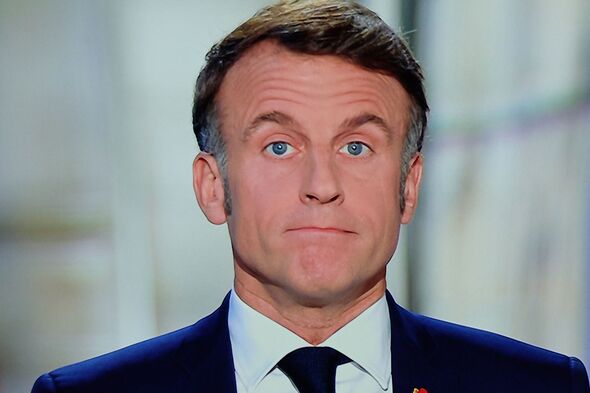Emmanuel Macron acknowledged in his New Year’s address to the nation that his decision to dissolve parliament backfired, which sent France into a political crisis, backfired.
“I must recognise tonight that the dissolution has, for the moment, brought more division in the (National) Assembly than solutions for the French,” the French President said, adding that “I take my full part for that,” he said.
It was as close as the French leader has come to apologizing for his June decision to trigger early legislative elections.
They produced a hung parliament, with the National Assembly roughly split among three sharply opposed main blocks — none with a majority to govern alone.
Macron has since had to rotate through three prime ministers — with Gabriel Attal followed by Michel Barnier followed by the current premier, François Bayrou — in an effort to find a consensus-builder who might be able to bridge parliamentary divisions, pass a 2025 budget and stave off the risk of another governmental collapse.
Macron, 47, expressed hope that lawmakers will form ad hoc majorities to pass legislation and said “our government should be able to follow a path of compromise to get things done”.
His address had begun on a lighter note celebrating the Olympic Games and Paralympics in Paris that temporarily shifted the focus from France’s political woes.
Macron also celebrated the reopening of Notre Dame Cathedral, which reopened this year in a star-studded ceremony after a catastrophic fire in 2019.
The new government’s most urgent order of business is passing a 2025 budget.
Financial markets, ratings agencies and the European Commission are pushing France to reduce its deficit, to comply with EU rules limiting debt and keep France’s borrowing costs from spiraling.
That would threaten the stability and prosperity of all countries that share the euro currency.
France’s debt is currently estimated at a staggering 112% of gross domestic product.
It grew further after the government gave aid payments to businesses and workers during COVID-19 lockdowns even as the pandemic depressed growth, and capped household energy prices after Russia‘s invasion of Ukraine. The bill is now coming due.
But France’s previous government collapsed in December because Marine Le Pen’s far-right party and left-wing lawmakers opposed 60 billion euros in spending cuts and tax hikes in the original 2025 budget plan, despite compromises by Barnier.
Bayrou and new Finance Minister Eric Lombard are expected to scale back some of those promises.
